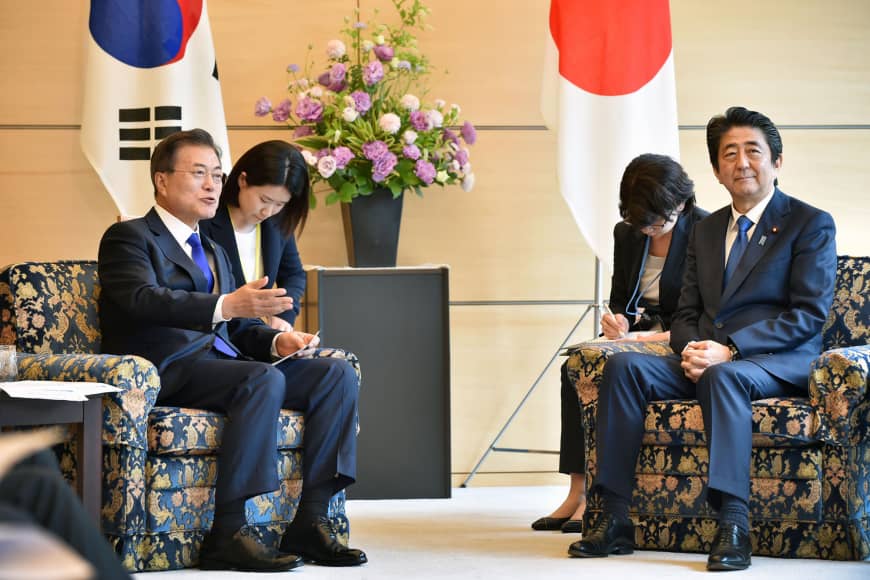TOKYO, Japan, Aug 7 (NNN-NHK) – Japanese Prime Minister, Shinzo Abe, said, he wants South Korea to uphold a 1965 bilateral agreement, that forms the foundation of modern relations between both countries and that for Seoul to realise that mutual trust is very much at stake.
At a press briefing in Hiroshima, Abe said, the countries’ ties are deteriorating and that trust remains the most important issue, regarding bilateral agreements.
“When we think about the current Japan-South Korea relationship, the biggest issue we have is of trust, or whether promises made between states are kept.”
He added that South Korea has “unilaterally” breached the accord that was supposed to finally and irreversibly settle the issue of compensation for wartime labourers, during Japan’s 1910-1945 colonial rule of the Korean Peninsula.
South Korea has “violated the treaty that served as the basis for us to normalise ties,” Abe said.
Abe reiterated that Japan’s position on the issue and the accord had remained consistent throughout and is based on international law.
South Korea, for its part, however, in a series of court rulings late last year, ordered Japanese firms to compensate the victims of wartime labour, in a move that rocked ties between both countries.
Japan claimed the rulings are not in line with international law and run contrary to the foundation of friendly and cooperative relations between the two neighbours.
Japan also believes the matter was settled, based on the 1965 accord, which also saw Japan pay 500 million U.S. dollars, in financial aid, related to the issue of compensation for forced wartime labour.
As ties have unravelled between both sides, Japan opted to tighten its export controls on three materials used by South Korea, to produce semiconductors and displays for phones and TVs, which are mainstays of South Korea’s tech-forward economy, and threatened to hurt major companies like Samsung.
Following this, Japan upped the ante earlier this month by removing South Korea from its “white list” of countries entitled to simplified export control procedures.
The move intensified the bitter diplomatic row between the two neighbours.
Seoul condemned the move, as reported by local media and called the move “extremely” reckless and “economic retaliation” over the wartime dispute.
South Korean civic groups have been reported as taking to the streets to protest against Japan’s moves, with some South Koreans boycotting Japanese products.
Flights connecting some South Korean cities with Japanese cities have also been suspended, amid a flurry of cancellations, local media here reported.
Meanwhile, on Monday, the South Korean Defence Ministry said, it was reviewing whether to maintain a military intelligence-sharing pact with Japan amid an escalating trade row.
The General Security of Military Information Agreement (GSOMIA) was signed in Nov, 2016, by South Korea and Japan, despite strong oppositions from the South Korean people.
Many South Koreans saw the deal with Japan as unacceptable, because the Japanese leadership had yet to sincerely apologise for its militaristic history. The Korean Peninsula was colonised by Imperial Japan between 1910 and 1945.– NNN-NHK





